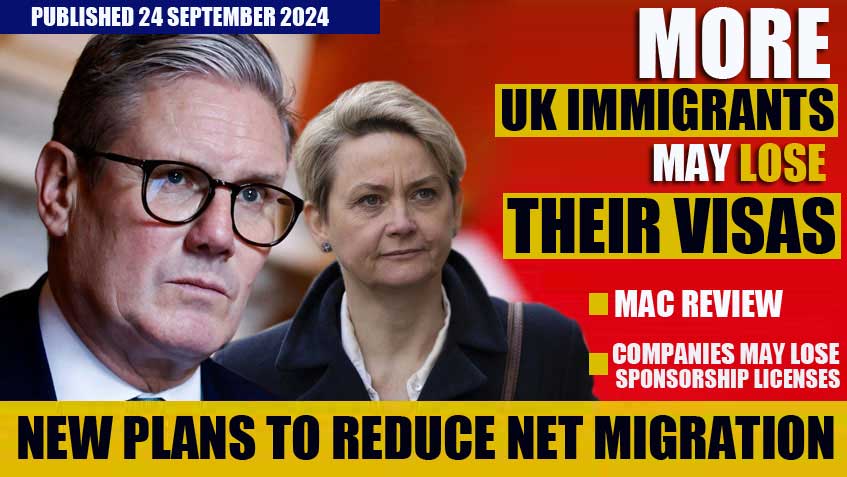UK Government’s New plans to reduce net migration
New plans to reduce net migration: The additional measures that were announced yesterday will help the government achieve its goal of reducing net migration.

Yesterday’s announcement of additional steps to reduce net migration at historically high levels supports the Home Secretary’s strategy of addressing the underlying issues that have led to the UK’s prolonged reliance on foreign hiring.
The industries that depend most on foreign labour will be singled out to make sure they are addressing their underfunding of local skill development.
JOIN WITH US WHATSAPP CHANNEL: https://whatsapp.com/channel/0029Va4bIhd6GcGCVFJLgE2L
The Migration Advisory Committee (MAC) will be tasked by the government to monitor and proactively highlight critical areas where shortages of skilled labour have resulted in spikes in foreign recruiting. The MAC will also be responsible for providing an annual assessment to ministers to assist in making policy decisions.
Additionally, regulations pertaining to the sponsorship of migrant workers’ visas will be tightened so that firms who violate labour laws would face severe consequences and be prevented from hiring foreign labour. This is on top of the measures already taken to crack down on holders of sponsor licenses and to end visa abuse, including increasing the number of UK Visas and Immigration (UKVI) investigation visits and suspending and revoking licenses in cases where employers take advantage of migrant workers and abuse the immigration system.
UK Government Job, 550 Vacancies | HMRC compliance caseworker
This comes after the Home Secretary previously announced plans to connect immigration policy with skills and broader labour market policy, meaning that employers will no longer automatically turn to foreign hiring to fill skill shortages, and the government has confirmed that the immigration system modifications made by the previous administration will stay in place.
The Home Secretary unveiled a new, coordinated approach to government in July. It lays out a framework within which the Industrial Strategy Council, Skills England, and the Department for Work and Pensions will collaborate closely with the MAC to ensure that training and skill shortages in the UK are not substituted for migration.
By investing in workforce plans, training, and better jobs for domestic workers, sectors will be able to lessen their reliance on foreign labour and quickly address skills shortfalls. This is made possible by the MAC’s annual assessment.
The enlarged function for the MAC will be strengthened by extra capacity and includes work to analyse the core issues of why certain sectors are so reliant on international workers. The Home Secretary has already given it a mandate to investigate the IT and engineering industries, two important fields that have historically depended on foreign labour rather than locating the staff and expertise locally in the UK.
UK JOBS & IMMIGRATION NEWS UPDATES
Five of the highest-paying European nations are now hiring foreign workers
JOIN WITH US WHATSAPP CHANNEL: https://whatsapp.com/channel/0029Va4bIhd6GcGCVFJLgE2L
